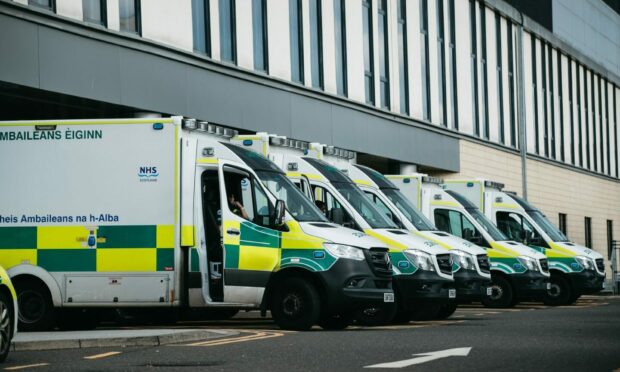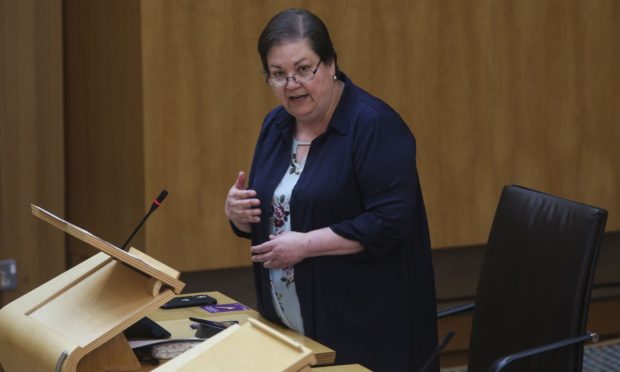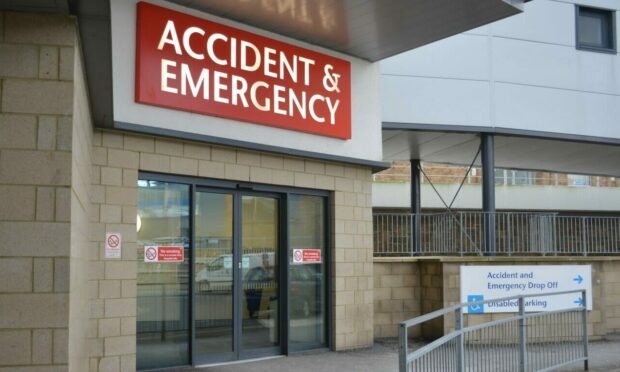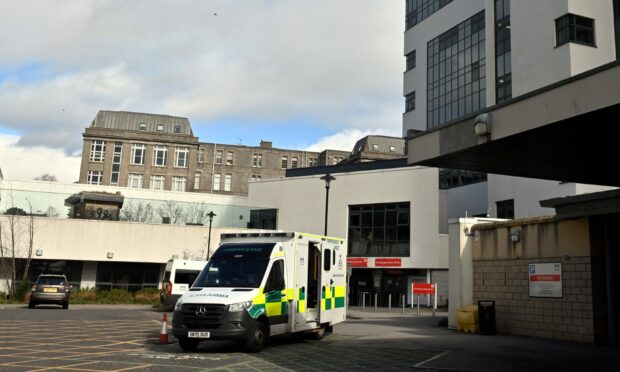Ambulances are still having to spend a “dangerous and unacceptable” length of time waiting at hospitals across Scotland, according to new figures.
Statistics released to Scottish Labour show maximum waits of more than six hours at Victoria Hospital in Kirkcaldy, and more than five hours at Aberdeen Royal Infirmary and Raigmore Hospital in Inverness.
Even longer waits were recorded at Royal Alexandra Hospital in Paisley, where it topped 10 hours, as well as at Glasgow’s Queen Elizabeth University Hospital, and University Hospital Crosshouse in Kilmarnock.
The figures, which cover a period from October 1 last year to January 31, show the ongoing pressures facing the life-saving service, which was plunged into crisis last year after being left stretched during the pandemic.
Scottish Labour health spokeswoman Jackie Baillie said: “These maximum turnaround times are incredibly worrying and show the immense strain that our ambulance service is under.
“Make no mistake – turnaround times of this length are both dangerous and unacceptable.
‘Incredibly worrying’
“Staff are working tirelessly at all hours but Humza Yousaf has entirely failed to support them throughout the winter ambulance crisis.
“We have heard stories of people dying in ambulances on driveways due to lengthy waits, whilst others have died before the ambulance even arrives.”
A spokesman for the Scottish Ambulance Service said health services across the country had been experiencing significant pressure in the past two years, exacerbated by Covid.
“These pressures are causing longer hospital turnaround times due to emergency departments being at near or full capacity and this in turn is impacting upon our ability to get crews back out on the road to help patients leading to lengthier response times,” he said.
“Health boards and the Scottish Ambulance Service are working together to try and mitigate wait times through joint escalation plans, and a number of other steps have been introduced to minimise ambulance waiting times, including introducing Hospital Ambulance Liaison Officers to manage flow, and increasing alternative care pathways for ambulance clinicians to support patients in the community.”
Apology
A spokesman for NHS Grampian said: “Ambulances having to wait at the front door is regrettable and we apologise to anyone who has been impacted by this.
“Our hospitals are currently facing sustained pressure.
“In addition, at certain, often unpredictable points, we experience periods of exceptionally high demand at the Emergency Department.
“This can result in abnormally intense surges of patients arriving at hospital, at the same time and can unfortunately lead to ambulances having to wait at the front door, as we’re unable to admit more patients to the department.
“During periods of intense pressure, cases are triaged as normal with those facing life-threatening situations – such as heart attacks or strokes – continuing to be admitted rapidly for life-saving treatment as an absolute priority.”
A Scottish Government spokesman said: “The Covid-19 pandemic has been the biggest shock the NHS has suffered in its 73-year existence and has heaped pressure on our ambulance service and wider NHS.
“The Scottish Ambulance Service is working closely with health boards to reduce turnaround times at hospitals.
“Challenges resulting in long ambulance turnarounds are ones for the whole system to respond to and steps are being taken within hospitals to receive patients into emergency departments as quickly as possible.”



